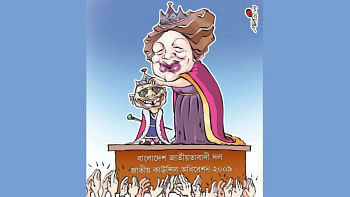Russia's accession to the WTO
Joining the World Trade Organi-zation (WTO) next year crowns a long period of transformation for Russia which first applied for membership in June 1993. To win WTO entry, Russia has had to overhaul its national laws to bring them into conformity with the global trade regime as well as work out bilateral market-opening deals with all the members of the body. Russia has agreed to slash tariffs, get rid of industrial subsidies, and allow foreign companies greater access to its domestic market. The most important concessions offered by Russia are in market access for foreign service sector companies and banks, which were eagerly sought by European Union states.
WTO membership will offer Russia some of the tools to rebalance its economy, which relies heavily upon selling the nation's oil. As a major oil exporter, over 50 percent of its foreign trade is already tariff free. However, the metallurgy and chemicals industries stand to gain from increased market access and protection from antidumping measures. In time, other industries will benefit from restructuring and increased productivity stimulated by increased competition.
Russia needs foreign capital in order to affect its modernization and is aware of the need to project a more positive investment image. The largest gains from WTO membership will come from increased foreign investment in the Russian market for services. Clearly, WTO membership alone will not convince cautious investors, but opening the Russian economy to international practices can only have positive benefits for the business climate. The Russians stand to benefit from the WTO entry, not just because they will get access to cheaper goods, but also due to the fact that the emerging infrastructure is to be created to support local industries. Russia's membership in the WTO will mean a more predictable trade market in Russia which is very important given the conditions of the current global financial crisis.
Yet it presents challenges too. While membership promises increased market access for Russian exports, Moscow will have to open Russia to foreign imports. Agreements will need to be implemented as a means to attract investment, stimulate trade and increase competition.
The challenges of membership are not limited to economic policy; they also undermine the political model that has come to define Russia since 2000. Under Putin, Russian citizens accepted reduced political freedoms in exchange for stability and economic growth. Within the WTO, Moscow will have fewer means to support inefficient industries against competition from abroad. This could cause problems for many towns which rely on one factory or industry for jobs and public utilities.
In the short run, reducing tariffs and other protective measures for import-sensitive industries such as autos and aircraft and opening up key financial service industries banking and insurance to foreign competition could lead to the loss of jobs in those areas and the need for the Russian government to provide unemployment insurance and other adjustment assistance.
However, globally competitive industries, such as the raw material producers, could see markets abroad opening up and an increase in foreign investment as accession forces Russia to restructure its economy. In the long run, evidence from economies that have gone through similar transitions suggest that trade liberalization will lead to a more efficient Russian economy and to raising the living standard of the average Russian citizen. New industries will probably emerge over time helping to diversify the Russian economy.
Russia is the largest and most populous country that had not been a member of the WTO. Russia's accession would significantly expand the geographical coverage of WTO rules to all major economies leading to a larger degree of stability and transparency to the international trading system. At the same time, Russia's entry into the WTO would continue a trend in which as the membership of the WTO becomes larger and more diverse, it becomes more difficult for that membership to reach a consensus on important issues. In addition, trade disputes between Russia and its trading partners will be brought to the WTO for resolution rather than addressed bilaterally, adding to the ever growing caseload of the WTO.
Still, to become a truly open economy, Russia will need to use WTO membership as a springboard for wider economic change. It is Putin who will face the tough realities of implementing WTO commitments, leading an elite that has long favored protectionism and subsidy over serious reform. However, the long-term benefits of membership should outweigh the initial costs. Russia will first have to make courageous decisions on which industries are truly sustainable and take measures to protect the population from the costs of adjustment.

 For all latest news, follow The Daily Star's Google News channel.
For all latest news, follow The Daily Star's Google News channel. 



Comments